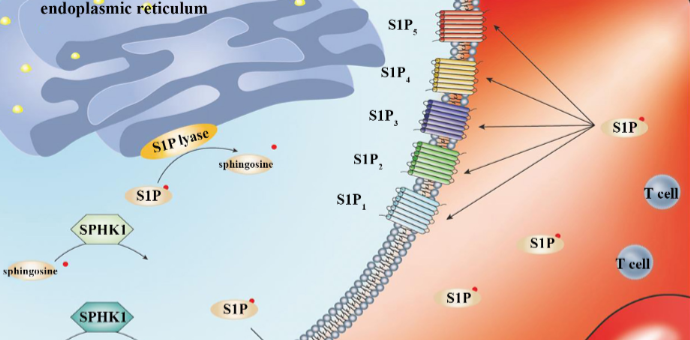S1P/S1PR signaling pathway advancements in autoimmune diseases
DOI:
https://doi.org/10.17305/bb.2023.9082Keywords:
Sphingosine-1-phosphate (S1P), sphingosine-1-phosphate receptor (S1PR), S1P/S1PR signaling pathway, autoimmune diseases, research progressAbstract
Sphingosine-1-phosphate (S1P) is a versatile sphingolipid that is generated through the phosphorylation of sphingosine by sphingosine kinase (SPHK). S1P exerts its functional effects by binding to the G protein-coupled S1P receptor (S1PR). This lipid mediator plays a pivotal role in various cellular activities. The S1P/S1PR signaling pathway is implicated in the pathogenesis of immune-mediated diseases, significantly contributing to the functioning of the immune system. It plays a crucial role in diverse physiological and pathophysiological processes, including cell survival, proliferation, migration, immune cell recruitment, synthesis of inflammatory mediators, and the formation of lymphatic and blood vessels. However, the full extent of the involvement of this signaling pathway in the development of autoimmune diseases remains to be fully elucidated. Therefore, this study aims to comprehensively review recent research on the S1P/S1PR axis in diseases related to autoimmunity.
Citations
Downloads

Downloads
Additional Files
Published
Issue
Section
Categories
License
Copyright (c) 2023 Li Jianbin, Huang Yiping, Zhang Yueqin, Liu Pengcheng, Liu Mengxia, Zhang Min, Wu Rui

This work is licensed under a Creative Commons Attribution 4.0 International License.
How to Cite
Accepted 2023-07-06
Published 2023-11-03









